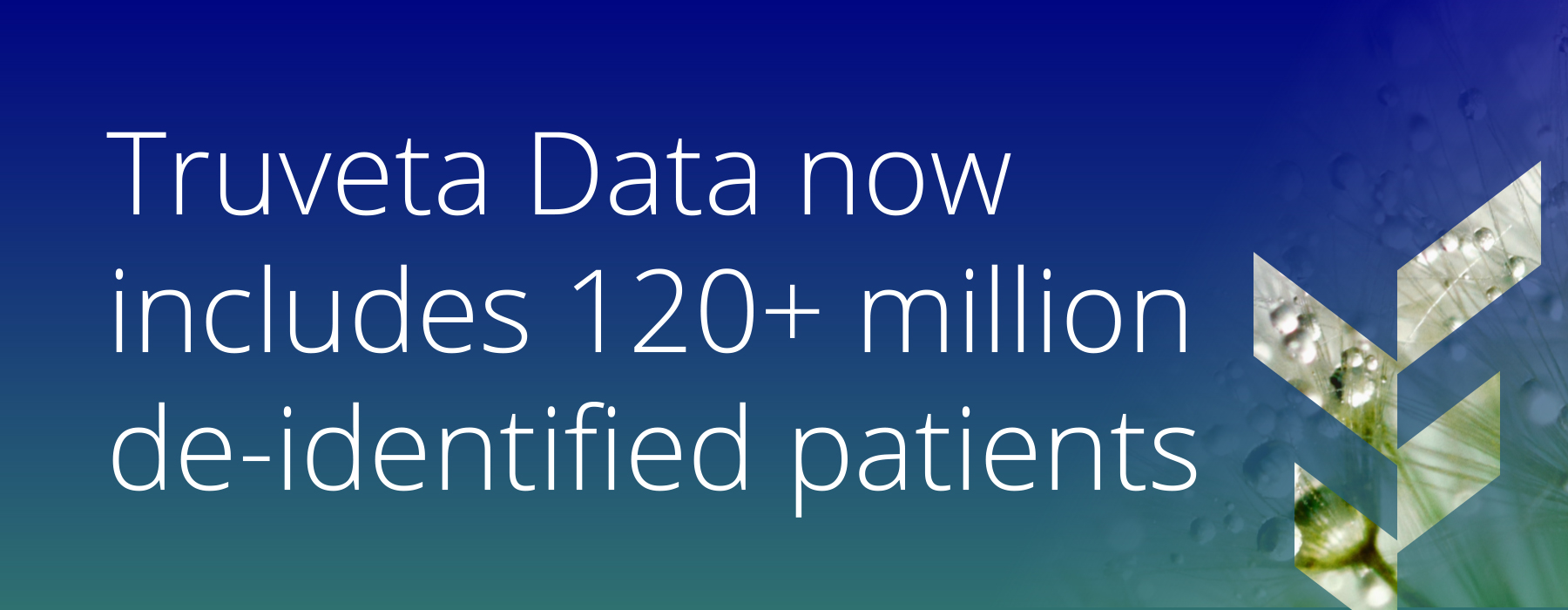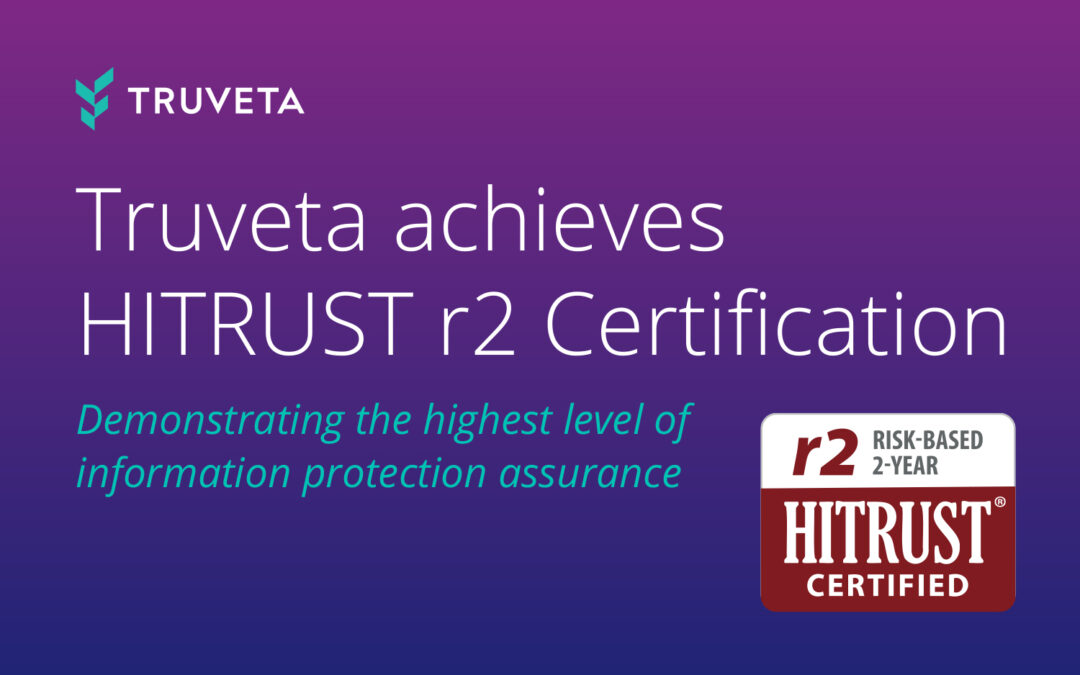Truveta Data, the most complete, timely, and clean electronic health record (EHR) data, now includes more than 120 million de-identified patients – more than one-third of the U.S. population – empowering researchers to study patients representative of the diversity of the US and train AI models without bias.
Truveta has also partnered with more than 100 organizations across life sciences, healthcare, public health, academic research organizations, and others to use regulatory-grade EHR data enabling scientifically rigorous research.
Updated daily for the most current view of patient care, Truveta Data includes inpatient and outpatient care from over 900 hospitals and 20,000 clinics. By providing a complete, timely view of the de-identified patient journey, including more than 5 billion clinical notes, nearly 100 million medical images, and billions of linked claims records, Truveta enables researchers to accelerate adoption of new therapies and advance patient care. Truveta Data includes more than 7 billion procedures, 5 billion encounters, nearly 8 billion medication dispenses, and 28 million medical device uses for a population that largely aligns with the representativeness of the US Census across race, ethnicity, age, and sex. Truveta Data includes an average of more than 5 years of patient history.

Researchers from organizations with new access to Truveta Data include American Heart Association, Bayer, Edwards Lifesciences, Eli Lilly and Co., Gates Ventures, GORE, Impulse Dynamics, Indiana University, Novartis, Olio Labs, Stryker, University of Texas Health Science Center at San Antonio, and others.
These organizations join industry pioneers who have used Truveta Data including Boehringer Ingelheim, Boston Scientific, Centers for Disease Control and Prevention (CDC), Leonard Davis Institute of Health Economics at University of Pennsylvania, Mathematica, MedComp, Reprieve Cardiovascular, SK Life Sciences, UCB, University of Michigan Institute for Healthcare Policy and Innovation, University of Washington CHOICE Institute, and more than 30 Truveta health system members.
Truveta Data featured in new peer-reviewed publications
Organizations are using Truveta Data to study a broad range of conditions across oncology, cardiology, infectious disease, metabolic disorders, neuroscience, hematology, and more.
Leading researchers have published new studies in peer-reviewed journals and presented at leading industry conferences on topics including colorectal cancer screening, diabetes, and heart failure, among others. Some of these new citations include:
Citation: Shaukat, Aasma MD, MPH et al. Real-World Adherence to Repeat Testing for Stool-Based Non-Invasive Colorectal Cancer Screening Tests Among Individuals With Average Risk. The American Journal of Gastroenterology. October 2024. https://journals.lww.com/ajg/fulltext/2024/10001/s375_real_world_adherence_to_repeat_testing_for.376.aspx
This new study explored how often complete follow-up stool-based tests for colorectal cancer (CRC) screening, focusing on tests like the fecal immunochemical test (FIT) and multi-target stool DNA test (mt-sDNA). The study was also recognized with the ACG Presidential Poster Award at the American College of Gastroenterology (ACG) 2024 Annual Meeting in Philadelphia, Oct. 25-30, 2024.
Citation: Wang X, Xu Y, Norman G, et al. CGM Use in People with Type 2 Diabetes Initiating GLP-1 or GIP/GLP-1RA Therapy—Real-World Data. Diabetes. June 14, 2024. https://doi.org/10.2337/db24-1922-LB
This study explored the use of continuous glucose monitoring (CGM) in patients with type 2 diabetes (T2D) prior to and after initiating GLP-1 medications. Using Truveta Data, researchers analyzed patients diagnosed with T2D aged 30 and older from 2018 to 2022. They explored three different cohorts: intensive-insulin treated, basal-insulin treated, and non-insulin treated, then evaluated their use of CGM both before and after initiating GLP-1 medications.
Citation: Jimmy Zheng, et al. Contemporary Decongestion Strategies in Patients Hospitalized for Heart Failure: A National Community-Based Cohort Study. JACC: Heart Failure. Aug 12, 2024. https://www.jacc.org/doi/full/10.1016/j.jchf.2024.04.002
This study analyzed contemporary heart failure (HF) decongestion strategies and identified clinical predictors of weight loss in HF hospitalizations in the US. Using Truveta Data, they developed the TREAT-AHF (Trajectory and Response to Emergently Administered Therapy for Acute Heart Failure) registry, describing baseline variables associated and benchmarking against ADHERE and GWTG-HF (Get With The Guidelines Heart Failure).
Citation: Monteleone, Peter, MD, et al. Modern Treatment of Pulmonary Embolism (USCDT vs MT): Results From a Real-World, Big Data Analysis (REAL-PE). JSCAI. October 24, 2023. https://doi.org/10.1016/j.jscai.2023.101192
This study explored patient outcomes associated with the use of ultrasound-assisted catheter-directed thrombolysis (USCDT) compared with mechanical thrombectomy (MT) for the treatment of pulmonary embolism. Using Truveta Data, researchers identified patients treated with ultrasound-assisted catheter-directed thrombolysis (USCDT) (Boston Scientific) or mechanical thrombectomy (MT) (Inari Medical) based on index procedures performed from January 2009 to May 2023, and contemporary analysis on those performed from January 2018 to May 2023. They performed multiple logistic regression analysis of major bleeding and measured in-hospital death and median length of stay to patient outcomes associated with each advanced therapy.
Citation: Rodriguez, Patricia J., PhD, et al. Semaglutide vs Tirzepatide for Weight Loss in Adults With Overweight or Obesity. JAMA Internal Medicine. July 8, 2024. https://doi.org/10.1001/jamainternmed.2024.2525
In this study, Truveta Research studied patients with overweight or obesity initiating either semaglutide or tirzepatide between May 2022 and September 2023 within Truveta Data. The team used multiple rigorous methods (including propensity score matching) to achieve a well-balanced analytic cohort of more than 18,000 patients to appropriately evaluate the effectiveness of semaglutide compared with tirzepatide for weight loss. The analysis found that patients taking tirzepatide were significantly more likely to achieve weight loss. Researchers also found that patients taking tirzepatide experienced significantly larger reductions in body weight at specified timepoints.








